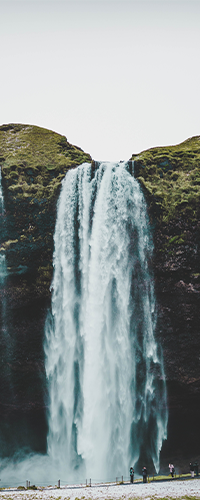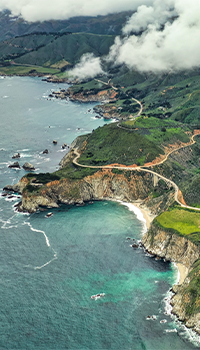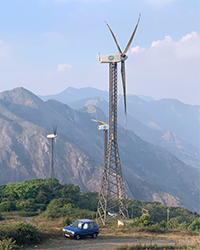What is it like to study for a PhD in Sustainable Resources? Read the reflections of our alumni and Graduate Tutor Professor Paul Dodds as we celebrate the teaching at UCL ISR over the last decade.
"The Institute for Sustainable Resources’s PhD programme has been a key pillar of our work since the institute was established in 2011. The BHP Billiton Foundation provided a donation to support 20 PhD students to research topics related to sustainable resource use. Most of these early students have now graduated and have gone on to have successful careers in research, government, industry and with international organisations. Today, the ISR has more than 25 PhD students studying topics as diverse as crowdfunding private public partnerships for energy access to the politics of urban water governance. The ISR aims to not only train our students to become independent, accomplished researchers, but also to become leaders and entrepreneurs in their chosen fields. Below we hear from some of our graduates who reflect on their PhD experiences, pressing resource challenges, and provide valuable advice to future students."
Professor Paul Dodds, UCL ISR Graduate Tutor
Before starting my PhD at UCL, I completed a BSc and MSc in Economics and spent two years working in government and international development. I was looking to strengthen my technical skills and expand my expertise in the economics of climate change, energy and development.
I enjoyed many things about the PhD. For example, being able to invest time in sharpening my technical skills was a luxury and stand-out feature of my time at UCL – especially as I was supported by some world class academics and experts. Being based at ISR also meant that I was able to conduct applied research on pressing sustainability and development challenges, rather than being isolated in the “ivory tower”. Overall, ISR, and UCL more broadly, offered a terrific network of colleagues and fellow PhD students from diverse personal and academic backgrounds. Our lunchtime conversations covered everything from geopolitics to bread baking, and I rarely left a day at the institute without having my mind boggled and horizon expanded.
After my PhD I joined the World Bank at its headquarters in Washington DC. Currently I’m a Senior Economist in the Bank’s Sustainable Development group. Our work is all about supporting developing countries in eliminating poverty and promoting green, resilient, and inclusive development. In practice that means working with client governments around the world to identify and tackle their most pressing development and sustainability challenges.
My PhD was key to prepare me for the role. It provided a rigorous training in economics, but it also offered me an opportunity to collaborate with and learn from experts of other disciplines – statisticians, social scientists, energy engineers, climate modelers, and spatial data scientists. The PhD taught me to find robust yet pragmatic solutions to complex challenges, drawing on the tool of rigorous analytics combined with the insights of local knowledge and experience.
For future students, my advice would be – if in doubt – follow and learn from the people that inspire you. It might lead you to topics and places that you didn’t expect or plan for, but the path is likely to be meaningful and rewarding.
Jun Rentschler, Senior Economist at the World Bank, Graduated 2017
Prior starting a PhD at UCL ISR, I had an MSc in Environment and Development and a BA (Hons.) in Economics. I also had work experience with diverse organisations including international development agencies (ADB and UNDP), research institutes (LSE), private sector consulting, and NGOs in India and the UK.
The best part of the PhD was being a part of a cohort of students working towards a joint goal of understanding some of the greatest complexities and challenges we are faced with. More personally, I relished the opportunity and freedom given to me by ISR to conduct my field research in a manner of my choosing. I spent close to a year in the desert villages of Rajasthan in India researching land use, climate change and its impacts on the people in the region. It challenged me and changed my perspective in the most meaningful way.
After graduating, I joined the UK Civil Service where I spent a couple of years as a senior policy advisor on energy policy. I moved teams and I am currently working in the International Climate and Energy team, where I lead on green finance policy. Completing my PhD helped me enhance my analytical skills, both qualitative and quantitative, and particularly the ability to think through and grasp complicated concepts, develop solutions through analysis, and importantly communicate solutions in an accessible manner.
My advice to future students would be to take delight in the time and space provided at the university to focus on a subject matter you are passionate about, and to be a part of as many conversations as you can!
Darshini Ravindranath, Civil Servant in the International Climate and Energy team, Graduated 2018
Before joining ISR, I obtained an MA in European Economic Studies from the College of Europe (Belgium) and an BSc in Economics from the University of Mannheim (Germany) and the Tecnológico de Monterrey (Mexico).
My favourite part was that the ISR culture gave me the perfect combination of the freedom to pursue my own research interests, and academic excellence through my brilliant supervisors and inspiring colleagues to exchange ideas, develop skills and build long-lasting links. My PhD helped me in numerous ways, but crucially it provided me with the required analytical background to support evidence-based policy making. It also helped me further develop a strong sense of self-motivation.
After graduating, I joined the Young Professionals Programme of the OECD as an Economist, working on the circular economy, environmental taxes and the monitoring of the UN’s Sustainable Development Goals. Since then, I have been working at the European Commission, first as an Economist in the Joint Research Centre on environmental innovations and firm growth, and now as a Policy Officer in the Recovery & Resilience Task Force on ensuring a green recovery. I never fully left ISR since I continue to be an Honorary Lecturer.
Florian Flachenecker, Policy Officer in the Recovery & Resilience Task Form at the European Comission, Graduated 2018
Before undertaking a PhD at the ISR, I completed a BA in political science and law in the Netherlands and ISR’s MSc in Economics and Policy of Energy and the Environment. I also spent time in southern Africa doing a year-long volunteer service in Mozambique and an internship/semester study abroad in South Africa, which made me curious about how developing and emerging economies can transition towards sustainable, low-carbon energy systems.
After finishing the MSc, I began a PhD focusing on the development of the sector for industrial-scale biogas systems in Thailand. Building on this research, after finishing, I was a postdoc at the UNEP DTU Partnership in Copenhagen, Denmark, where I studied the markets for small wind turbines and household solar devices for off-grid electrification.
Tobias Reinauer, Postdoctoral Researcher at Technical University of Denmark, Graduated 2019
What are the biggest sustainable resources challenges and opportunities facing society today?
Jun
“It is striking that the solutions to climate change and broader sustainability challenges are often well known and available, and yet progress seems to be painstakingly slow and complicated. Why is that? For instance, to tackle climate change we know that we need to scale up renewable energies, decarbonize transport, insulate buildings, conserve carbon sinks, etc. We also know that we need social support systems to ensure that transitions don’t come at the expense of vulnerable and poor groups.
Broadly speaking, for all these purposes we have a good understanding of the available policy and regulatory instruments. The necessary technologies mostly exist already, and the financing needs are not impossible. That is not to say that we don’t have knowledge gaps – further research will be crucial, for example to identify more effective policies and further reduce costs of clean technologies. But it does suggest that in practice we struggle with taking action in the messy reality of politics, power relations, vested interests, misinformation, and behavioural biases.
Finding better ways to overcoming these implementation challenges will be essential for making meaningful progress in all areas of sustainable development. Strong institutions, open access to objective information, and inclusive decision making will be key to this puzzle. And if managed well, we stand to benefit from safer, cleaner, and more equal and prosperous societies."
Darshini
“I will quote the UNCCD - “It is essential to understand and address the dual challenges of land degradation and climate change if we are to meet targets, such as proposed by the sustainable development goals, tackle poverty and address many of the most pressing environmental challenges of the 21st century”. "
Florian
“In my view, the biggest challenges facing society today– and at the same time biggest opportunities – are linked to ensuring that the green transition fosters social cohesion and the active participation of citizens."
Tobias
“In my opinion, one of the biggest challenges today concerns the prospect of low-carbon growth in emerging economies. High-income countries that have made progress in lowering their greenhouse gas emissions need to ramp up their collaborations with emerging economy partners in order to share the lessons they have learnt."
Links
Related News
 Close
Close





